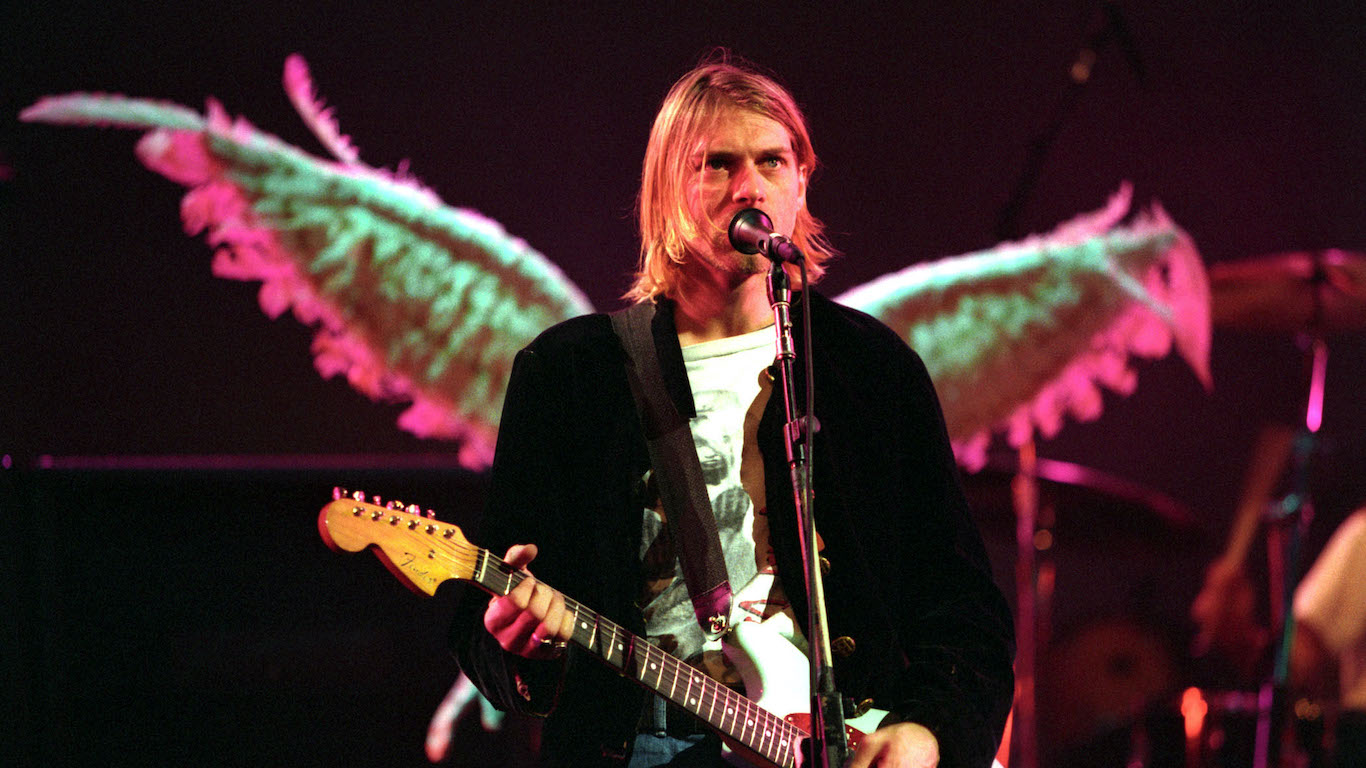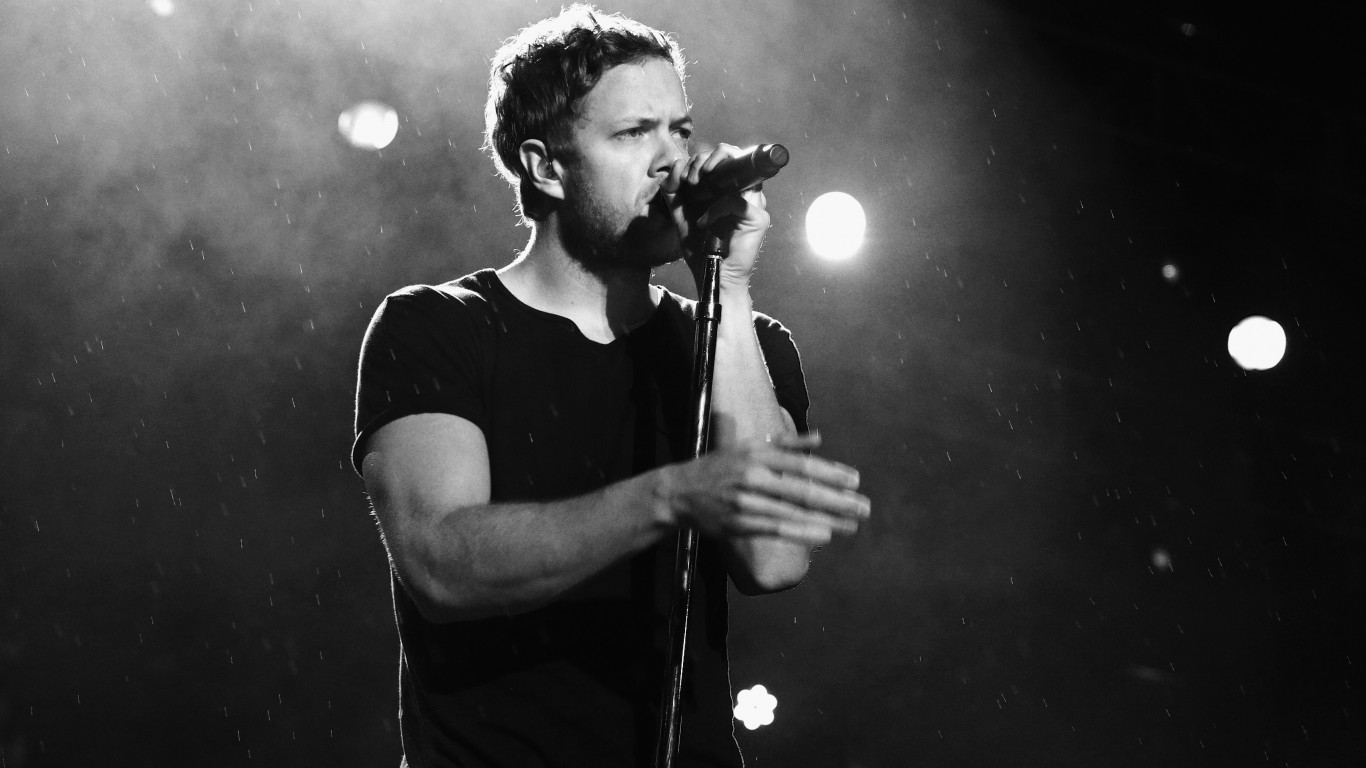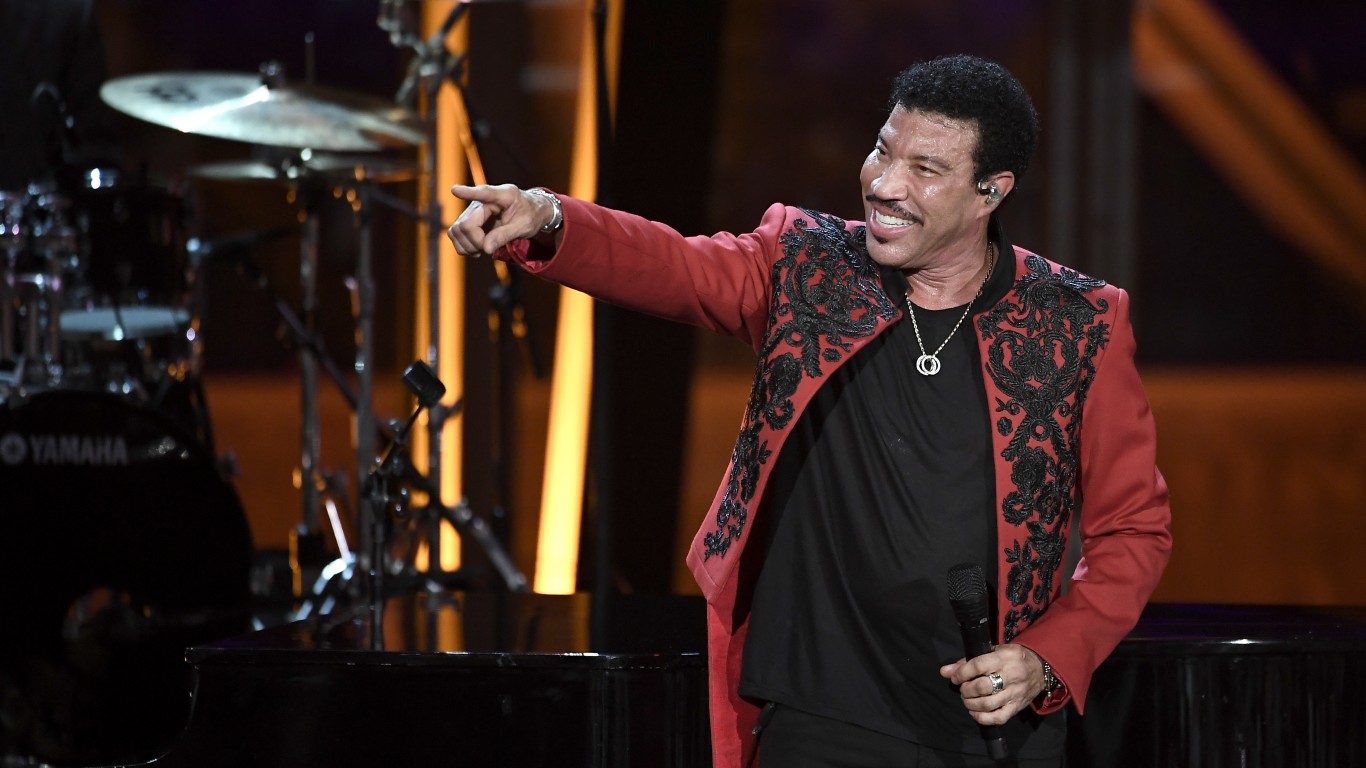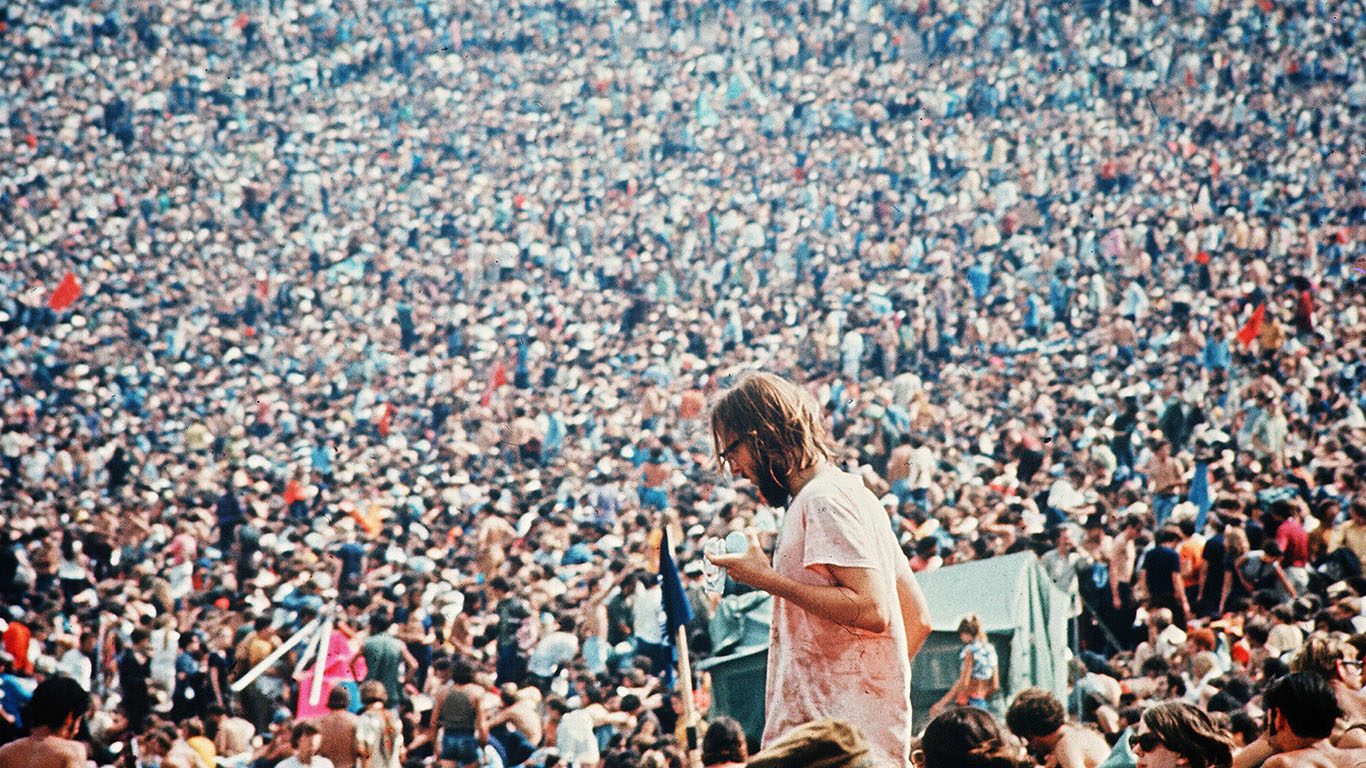
The Woodstock Music & Art Fair, held from Aug. 15-18, 1969, wasn’t the first big outdoor music concert. Monterey Pop in California in 1967 had featured major performers such as Otis Redding and the Grateful Dead. It wasn’t the last large outdoor concert either. Just several weeks later, many of the rock icons who played at Woodstock performed at the Isle of Wight Festival in England.
For whatever reason, the concert in upstate New York (actually in Bethel, 43 miles from Woodstock itself) seemed to encapsulate the zeitgeist of the 1960s and define a generation and the counterculture of the time.
Some people view Woodstock through rose-colored glasses, and think of the event as “3 days of peace and music” (actually four) as advertised on the promotional poster and the dawning of an aquarian age. Some look askance at what unfolded; they recall chaos, mud, traffic, and unfettered drug use. It was all captured for posterity in the documentary “Woodstock,” which is one of the better — but not the best — concert films. These are the greatest concert films of all time.
People of a certain generation all know who was there. Jefferson Airplane, Jimi Hendrix, Janis Joplin, Creedence Clearwater Revival, and The Who were some of the luminaries among the 32 acts at Woodstock. These are the 100 most popular rock bands of all time. However, a list of those who weren’t there, for whatever reason, would be just as interesting. 24/7 Tempo has compiled a list of artists who never got to Woodstock.
Promoters Michael Lang, Artie Kornfeld, Joel Rosenman, and John P. Roberts hoped to include Bob Dylan, the Doors, the Byrds, and several others, in the show. The (then) recently formed Led Zeppelin was on a very successful tour and was invited to appear as well. Invitations were also extended to progressive rock acts such as the Moody Blues, Procol Harum, and Jethro Tull. Lang even considered having the singing cowboy Roy Rogers close the show with his signature song, “Happy Trails.”
In the end, many acts did not appear for various reasons, but it didn’t seem to hurt their careers. Dylan, the Doors, the Byrds, and Led Zeppelin were eventually inducted in the Rock & Roll Hall of Fame. The Moody Blues, Procol Harum, and Jethro Tull achieved fame in the next decade by taking the rock genre in a more progressive direction.
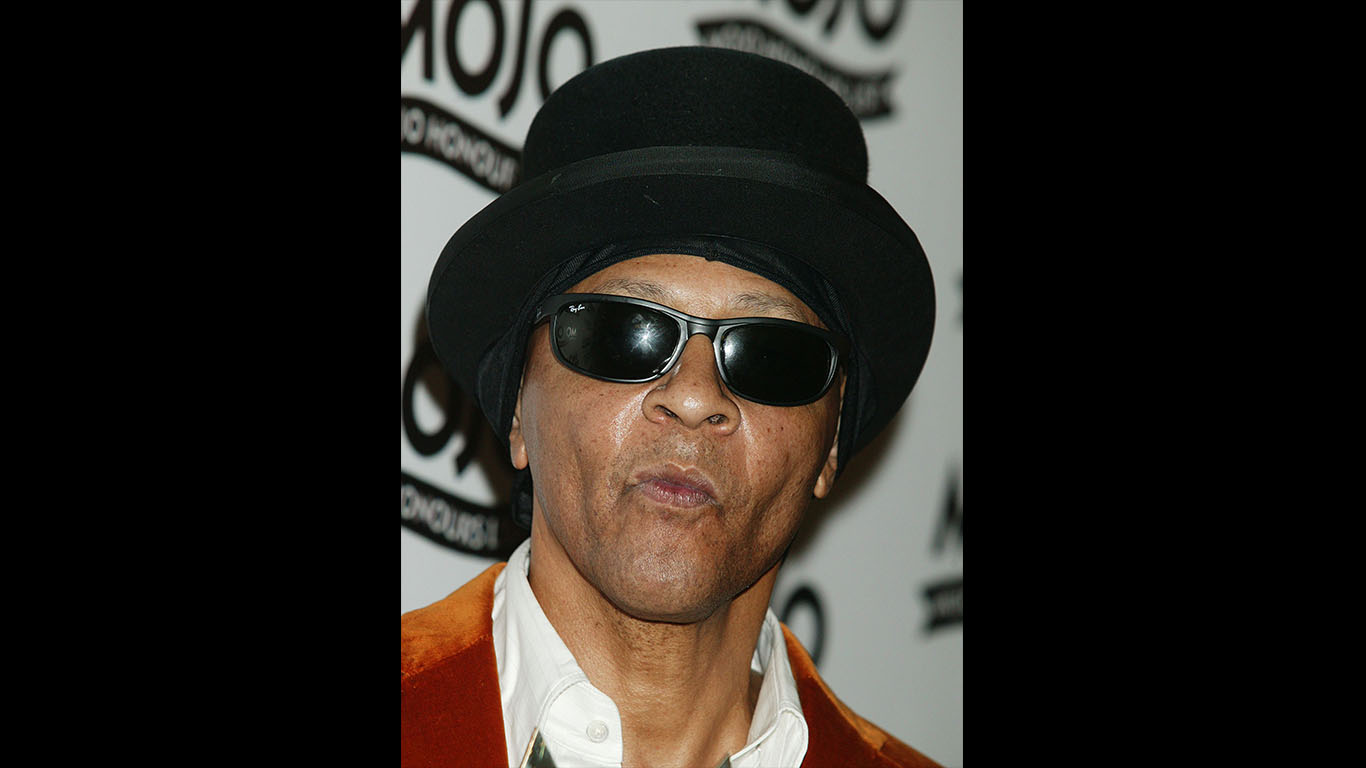
1. Arthur Lee and Love
The California-based band famous for the album “Forever Changes” that had come out two years before Woodstock decided not to perform because of conflict within the group.
[in-text-ad]
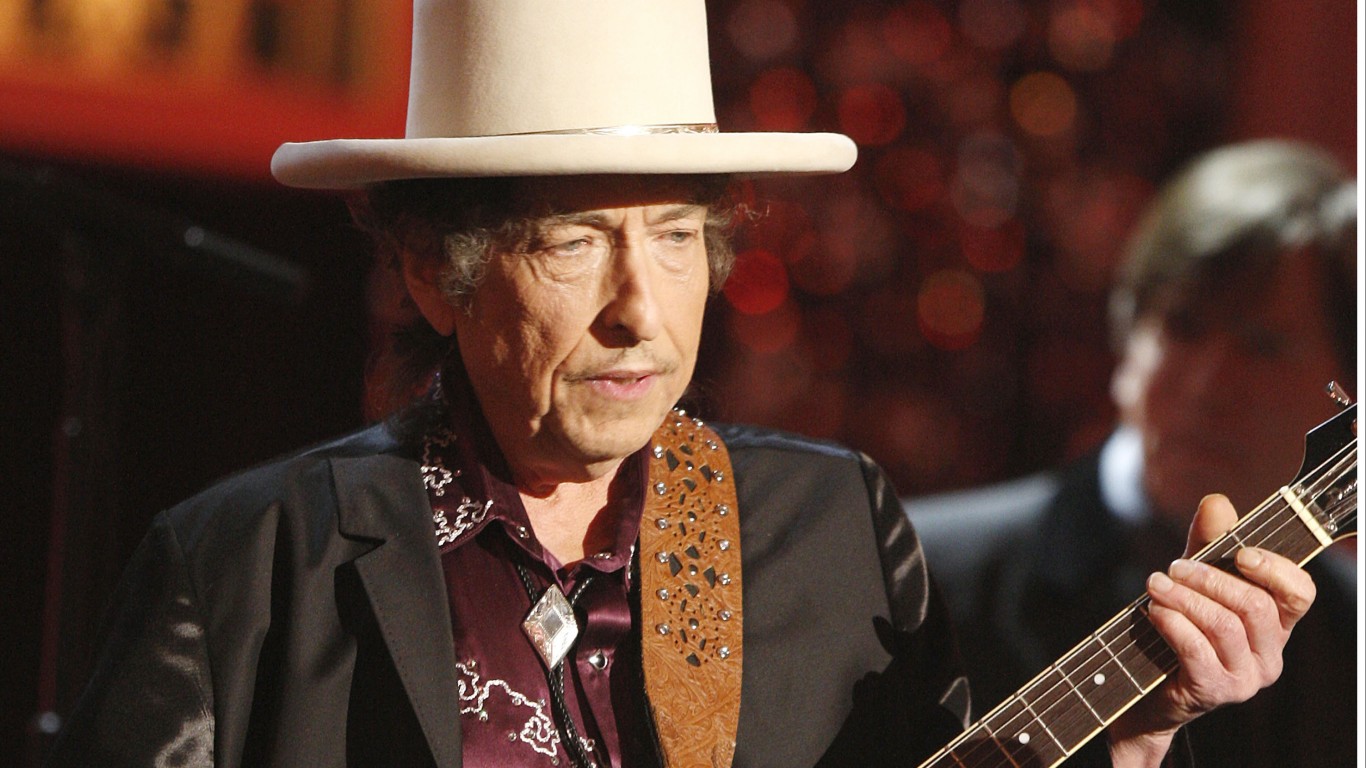
2. Bob Dylan
Folk rock’s troubadour was in talks to perform at the festival (he actually lived fairly close by), but his son became ill and he opted out. He also was a bit off-put by the number of people descending on the region for the concert. Dylan would headline the Isle of Wight festival in England several weeks later.
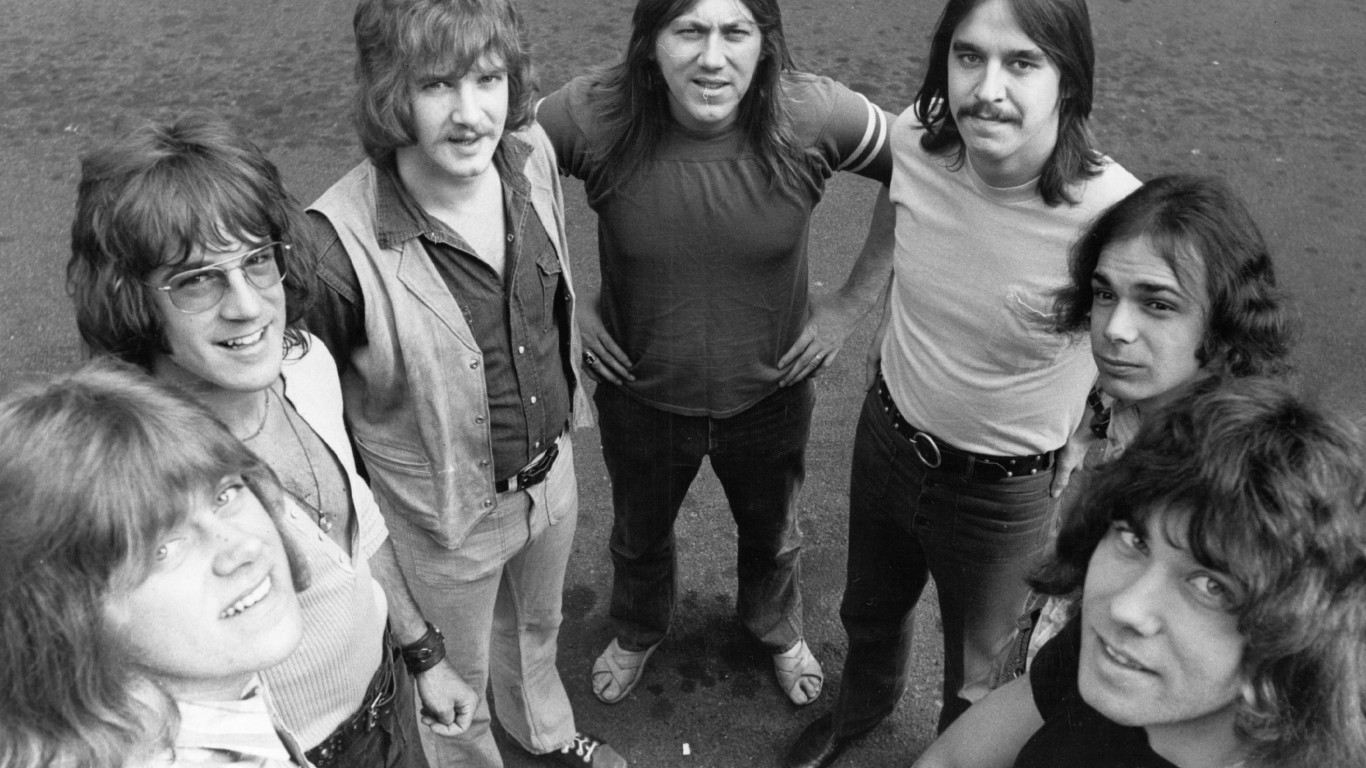
3. Chicago Transit Authority
Chicago, famed for its brassy take on rock and roll, was called Chicago Transit Authority in the late 1960s. The group was scheduled to perform at Woodstock, but their concert promoter, Bill Graham, rescheduled them for a gig at the legendary Fillmore in San Francisco at the same time the outdoor concert. Santana, who also worked with Graham, took Chicago Transit Authority’s place at Woodstock.
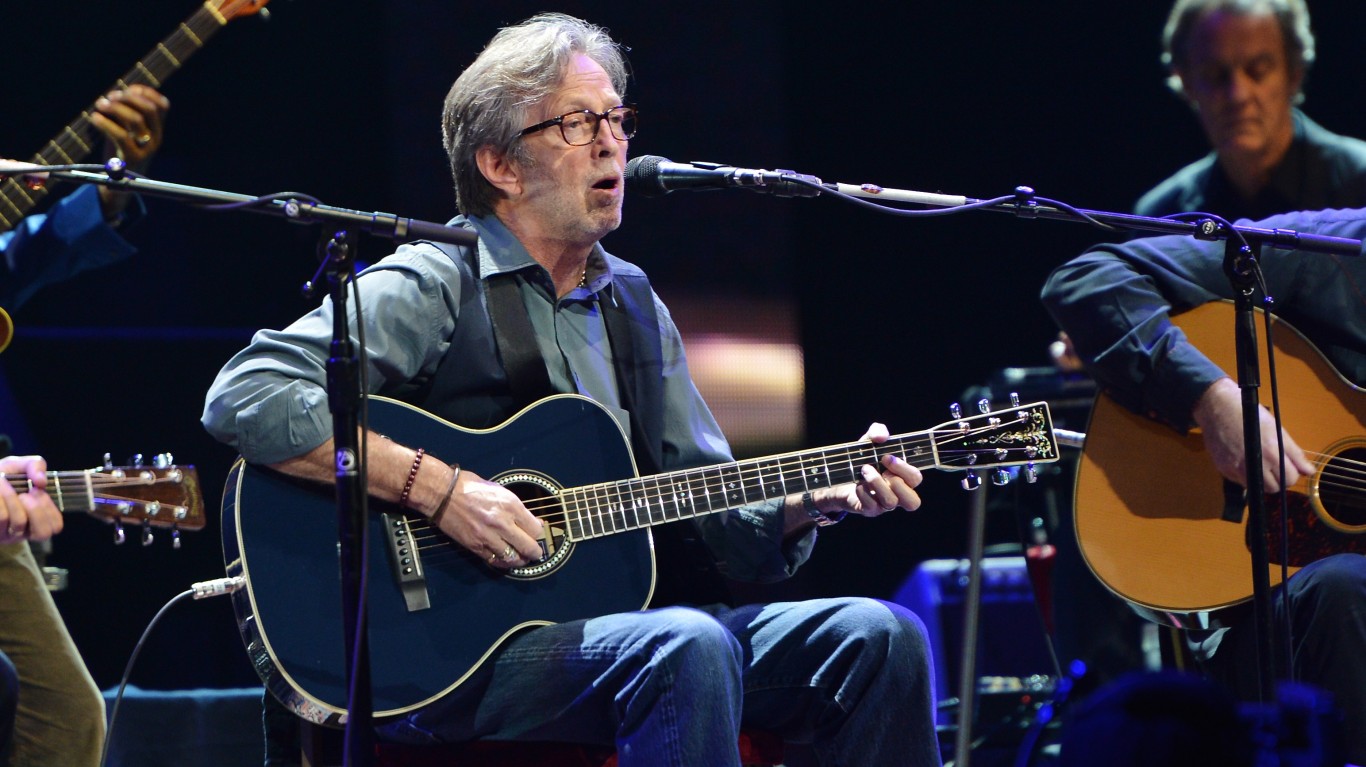
4. Eric Clapton
One of rock’s greatest guitarists was a man without a band at the time of Woodstock, with the Yardbirds and Cream — two bands he helped embed into rock and roll folklore — disbanded. Clapton was busy in England working on his next superband with music wunderkind Steve Winwood, a project that would become the short-lived Blind Faith.
[in-text-ad-2]

5. Frank Zappa and the Mothers of Invention
Music iconoclast Frank Zappa decided not to have his band, the Mothers of Invention, play at Woodstock because he thought the weather would turn the affair into a quagmire.

6. Free
British blues/rock band Free, formed in 1968, landed a big hit with “All Right Now.” Free was invited to play at Woodstock, but band leader Paul Rodgers turned down the invitation. Rodgers would go on to form the power supergroup Bad Company that would find success in the early 1970s. Rodgers did play at Woodstock’s 25th anniversary concert in 1994.
[in-text-ad]
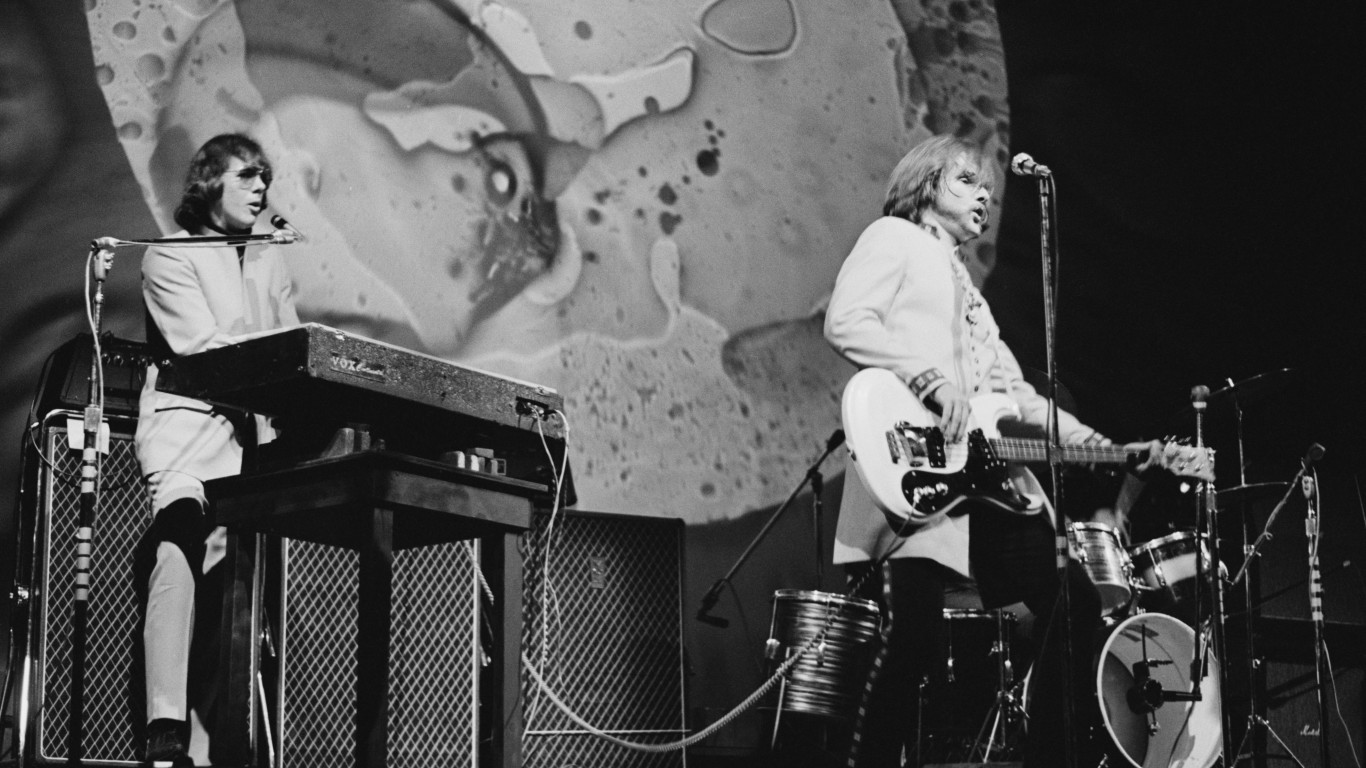
7. Iron Butterfly
Iron Butterfly is most famous for its 17-minute 1968 psychedelic/heavy metal hit “In-A-Gadda-Da-Vida.” The band was booked to perform at Woodstock but became stranded in New York. The band’s manager demanded that the promoters send helicopters to New York City and fly them to the concert site, have them perform on arrival, be paid on the spot, and fly them right back out. Woodstock’s promoters declined the request.
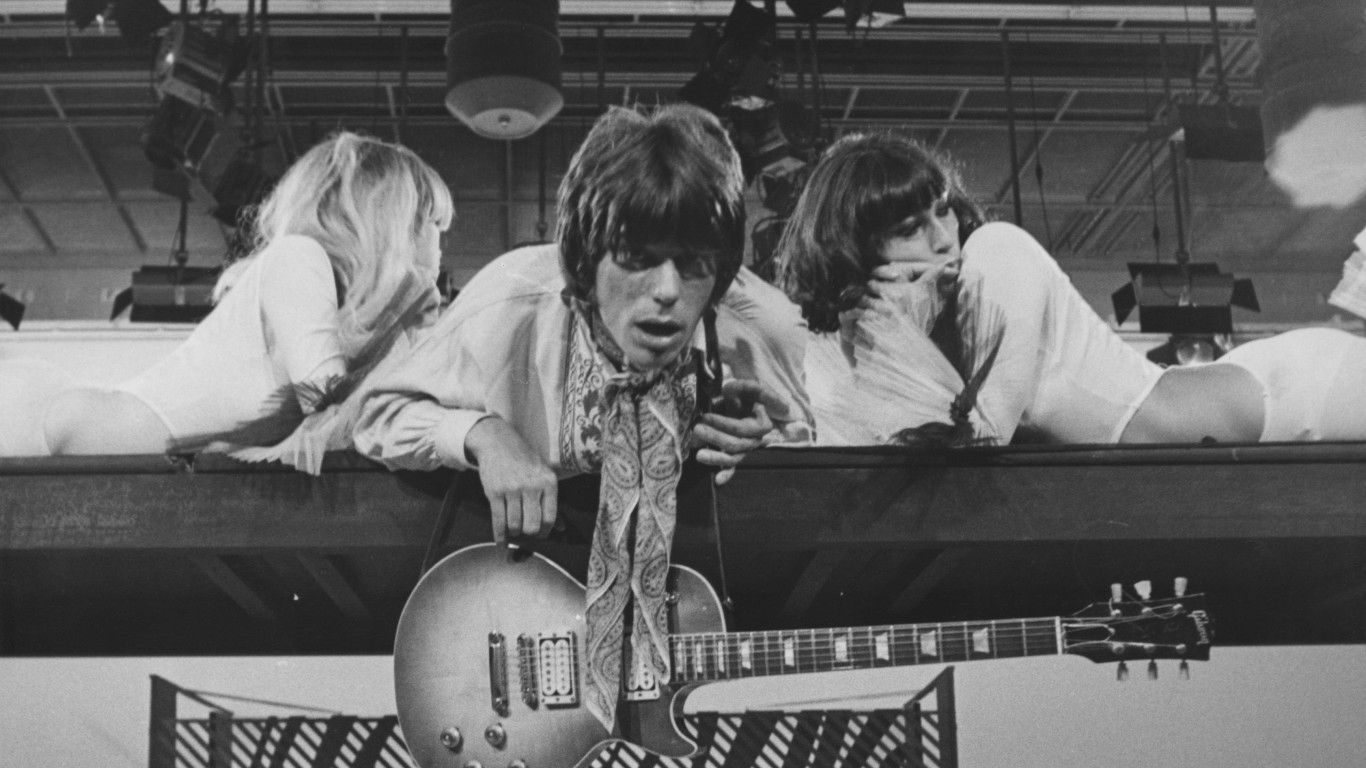
8. Jeff Beck Group
Guitar maestro Jeff Beck, who played with Eric Clapton in the Yardbirds several years earlier, was on the Woodstock bill with his band The Jeff Beck Group, but Beck broke up the group a week before the concert.
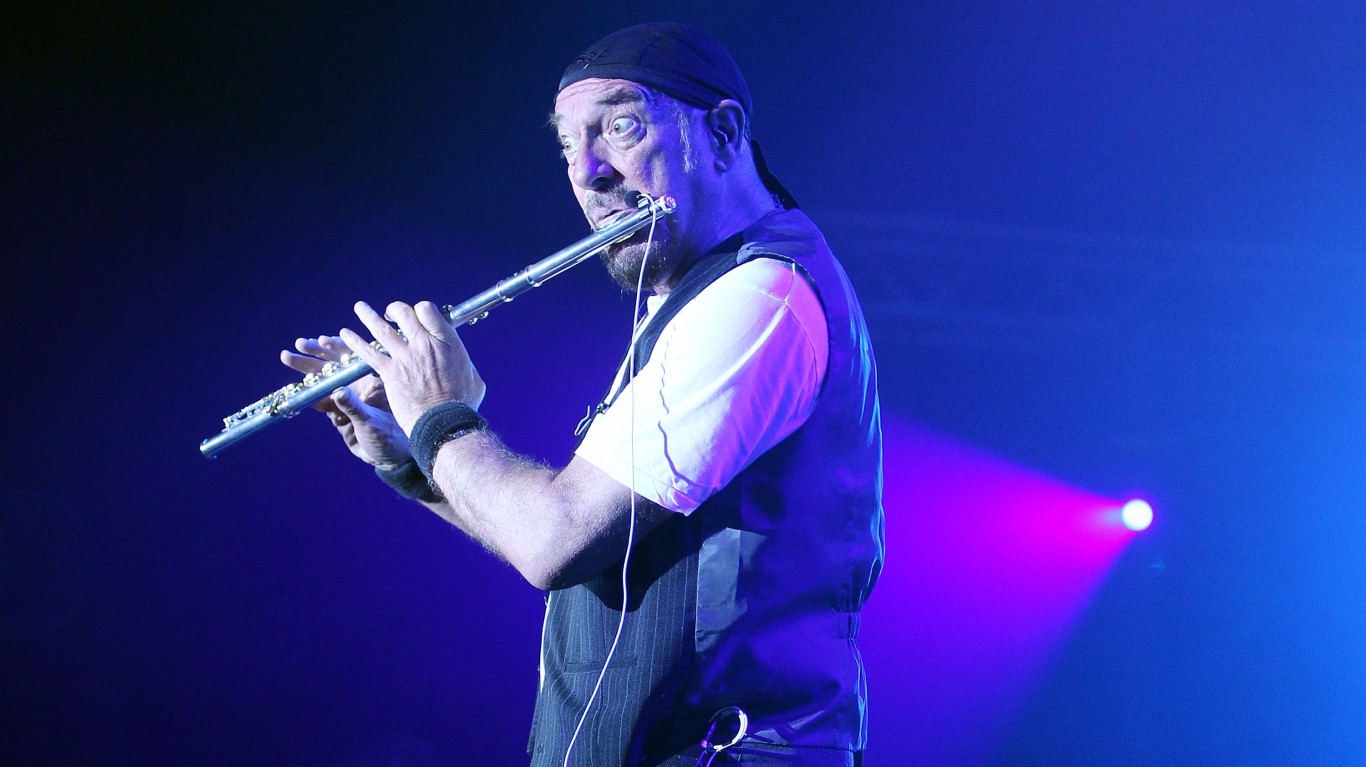
9. Jethro Tull
Ian Anderson, lead singer for the prog rockers, didn’t want to go to the muddy venue with “unwashed hippies.” It was something of a gamble for the English band, who had only formed two years prior and was not that well known in the United States. But the decision did not change their destiny of becoming one of the most influential progressive rock bands of the 1970s.
[in-text-ad-2]
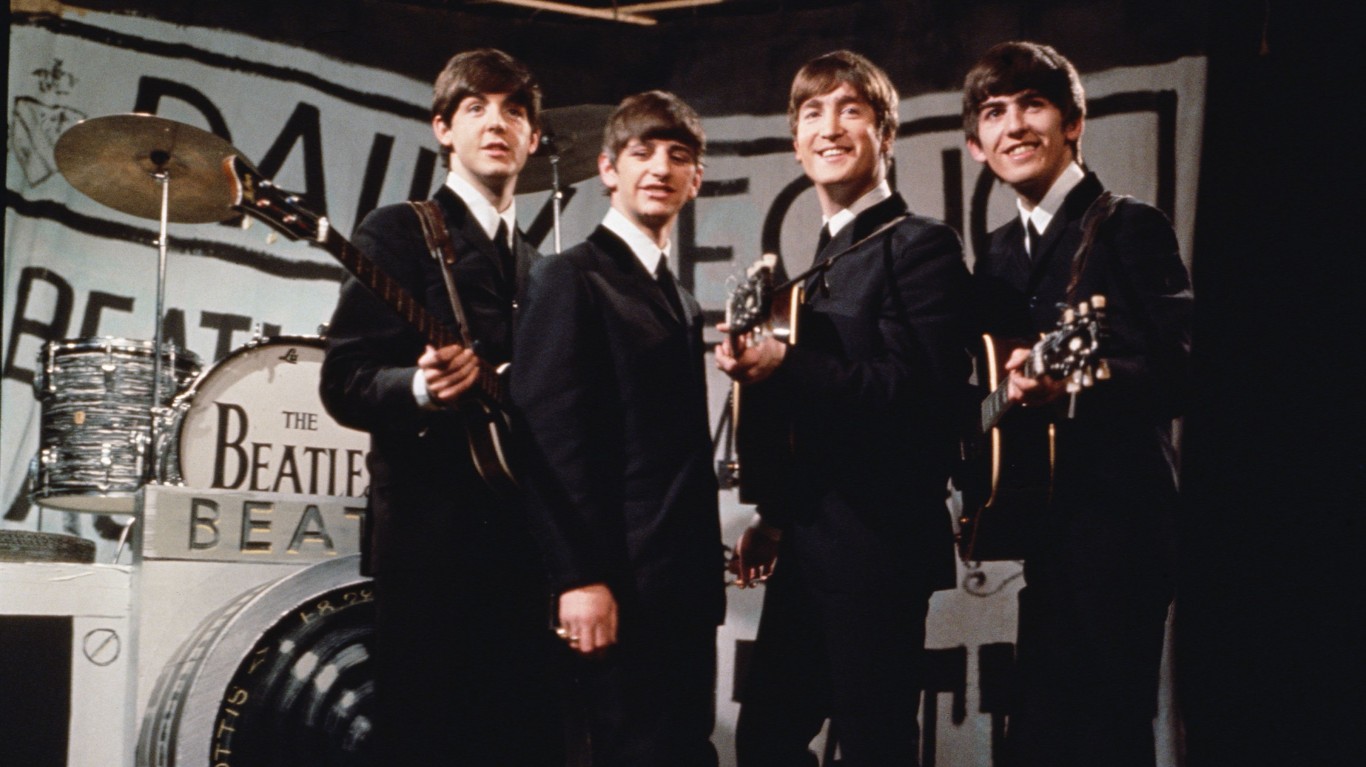
10. John Lennon/The Beatles
The Beatles playing at Woodstock was always something of a pipe dream. They had not performed publicly in three years by the time of the concert. The possibility of John Lennon performing at Woodstock had some momentum, but Lennon had immigration problems stemming from a conviction for possession of cannabis resin in 1968.

11. Joni Mitchell
The folk singer was booked to play Woodstock, but her manager, future entertainment mogul David Geffen, deterred her from performing at the concert so that she would be fresh for her appearance on the Dick Cavett talk show. As if that wasn’t bad enough, also appearing on the Cavett program were Stephen Stills and David Crosby from the band Crosby Stills and Nash, and Jefferson Airplane, rock acts that had just performed at Woodstock. Mitchell ended up writing the hit song “Woodstock” based on the observations of her boyfriend Graham Nash.
[in-text-ad]
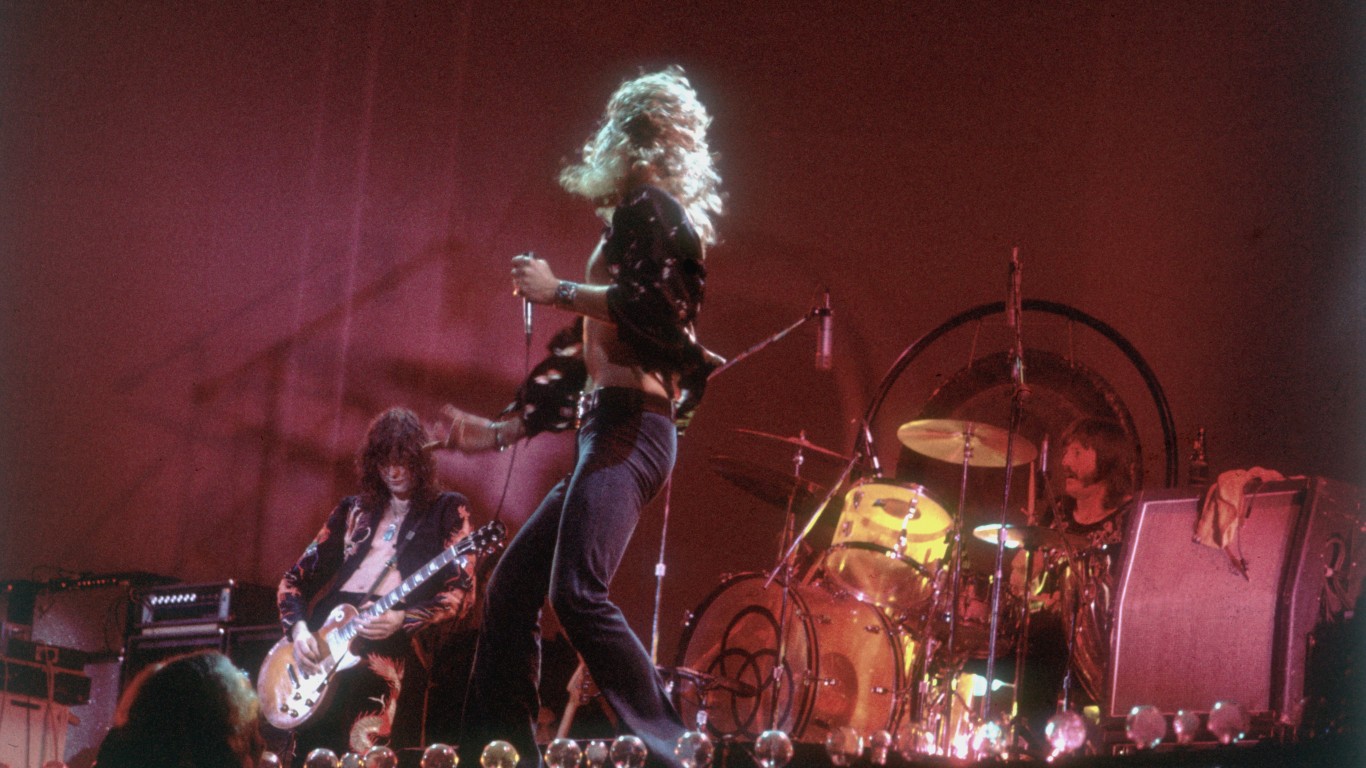
12. Led Zeppelin
Perhaps the greatest hard rock band to ever pierce the ears of a generation was in its infancy and in the middle of a very successful tour of the United States. Band manager Peter Grant decided the British band would be better off playing Convention Hall in Asbury Park, New Jersey, rather than be just another of the 32 acts at an outdoor concert in upstate New York.
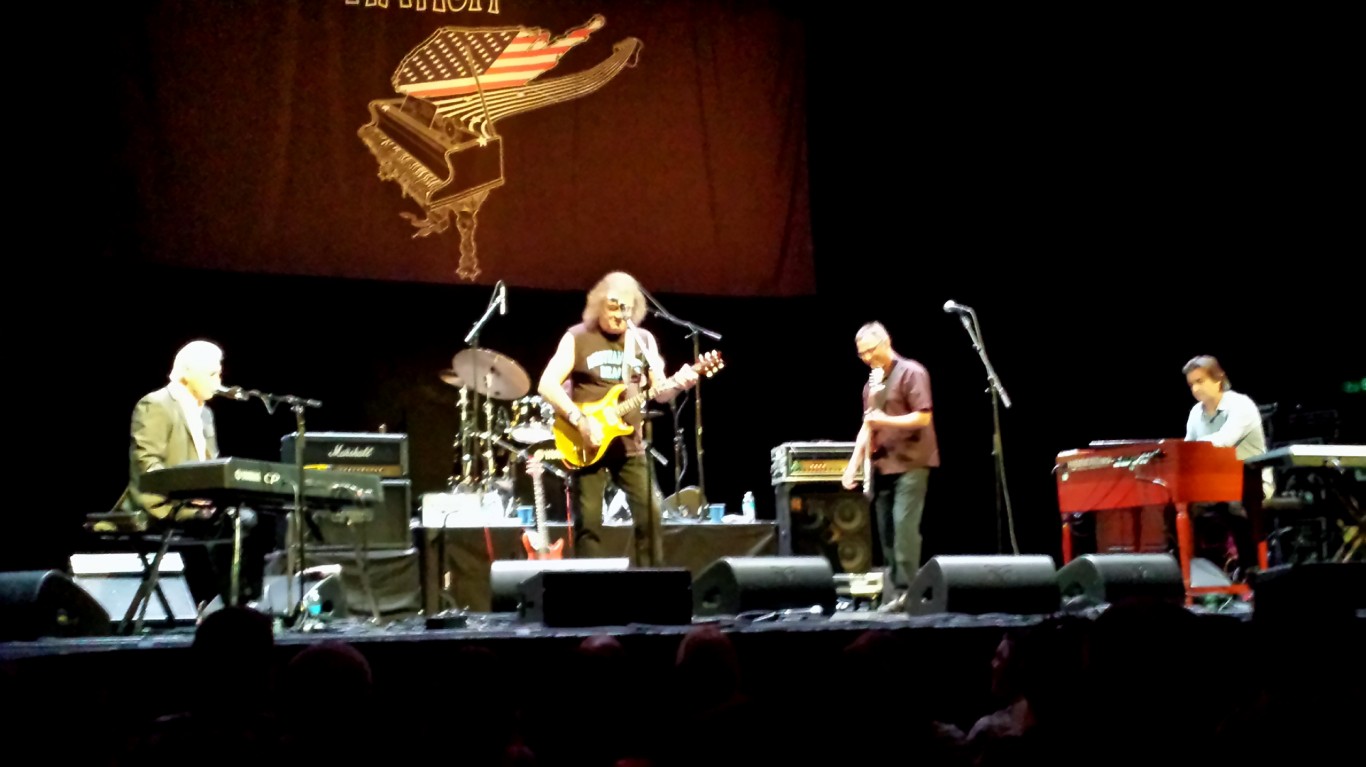
13. Procol Harum
The prog rockers were building a following, and their signature hit, “A Whiter Shade of Pale,” was getting some airplay on the radio and on college campuses and would eventually be played in movies such as “The Big Chill.” Procol Harum was invited to perform at Woodstock but begged off because they were tired from a long tour. Also, band member Robin Trower was awaiting the birth of one of his children.

14. Roy Rogers
Michael Lang, one of the concert promoters, hatched the idea of having Roy Rogers, famed singing cowboy of movies and television, close the concert with his signature song “Happy Trails.” Rogers’ manager didn’t think it was a great idea, and it never happened.
[in-text-ad-2]
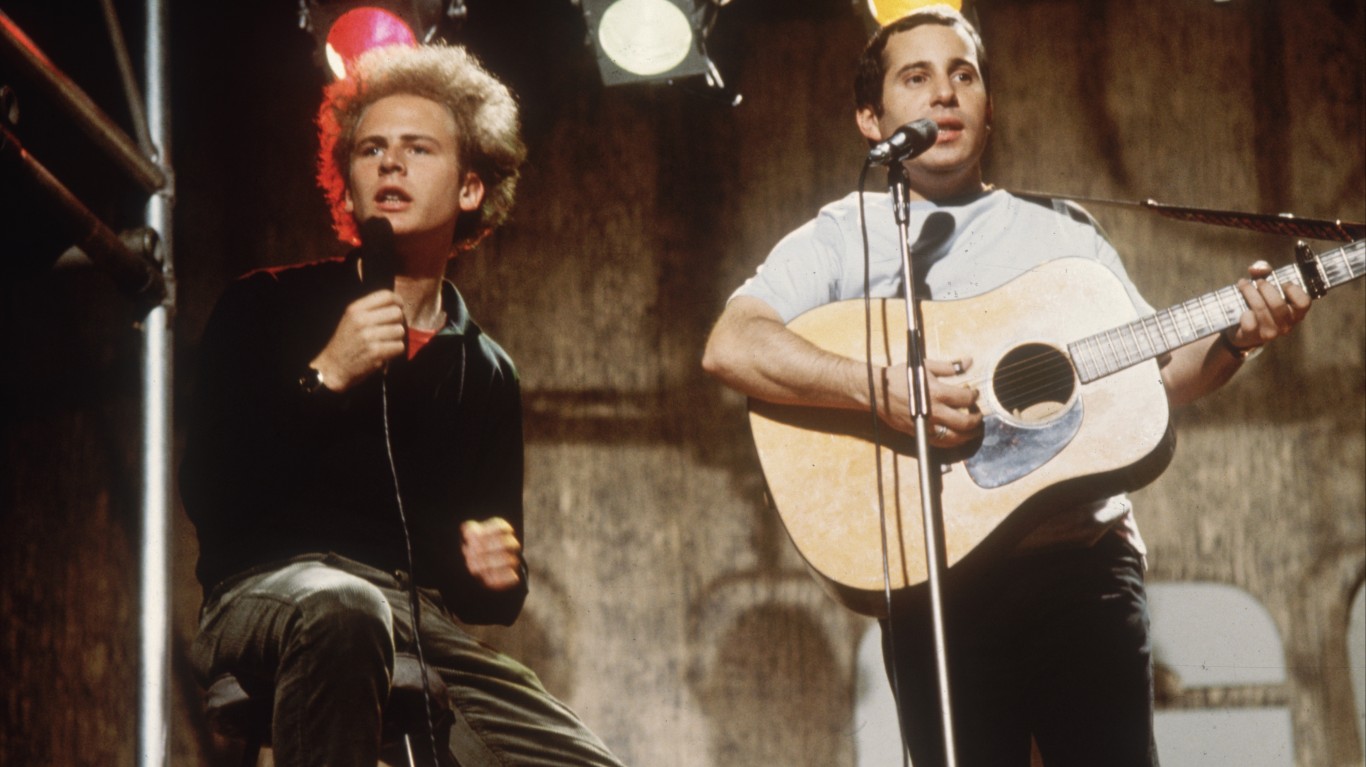
15. Simon and Garfunkel
America’s premier folk duo was riding high from their success as the soundtrack to the coming-of-age counterculture classic “The Graduate” included “Mrs. Robinson,” which also reached No. 1 on the Billboard Hot 100. They passed on Woodstock, claiming they were too busy. There was also mounting tension between the two.
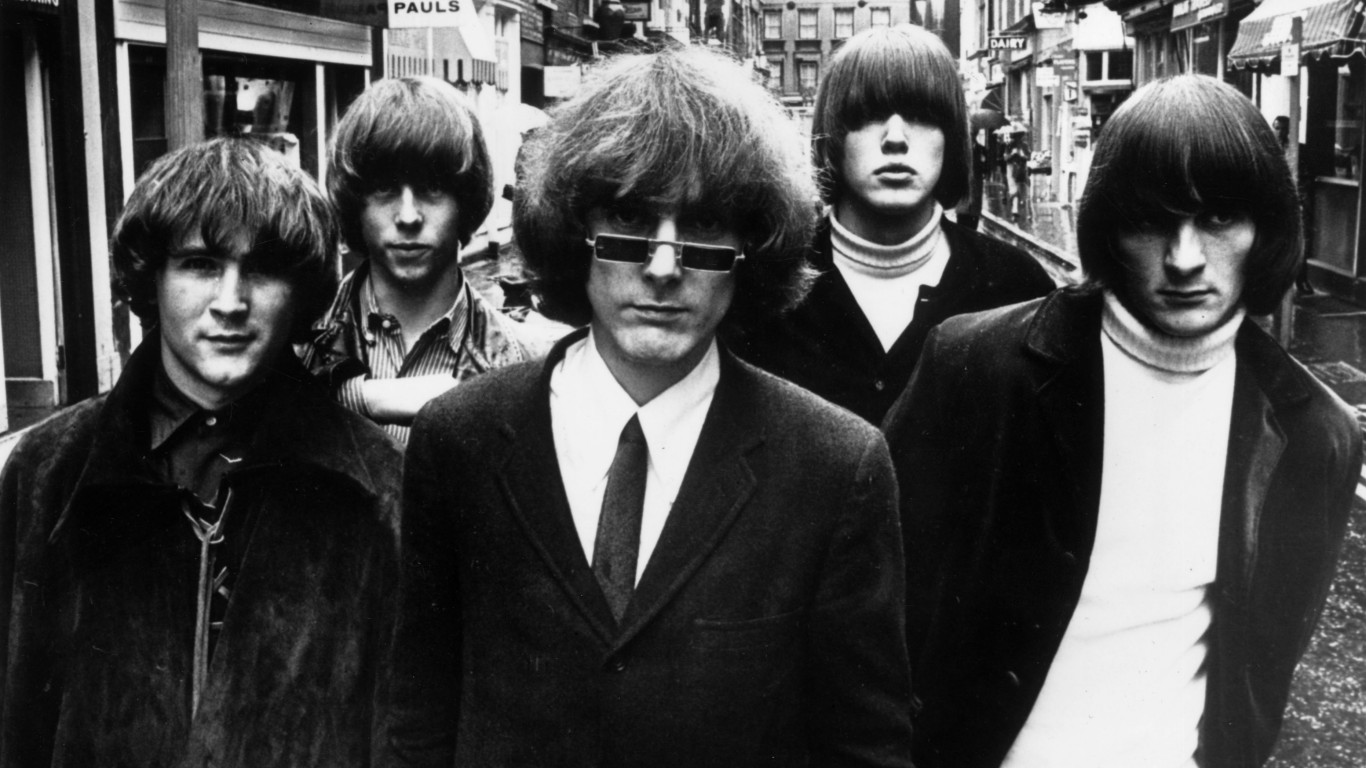
16. The Byrds
The twangy folk-rockers of “Mr. Tambourine Man” and “Turn, Turn, Turn” fame were burned out from touring. They had played big outdoor venues already, including Monterey Pop two years earlier, and band members didn’t think Woodstock was going to be that big of a deal. They also heard there were concerns about how much bands were getting paid. Band members later said they regretted their decision not to appear at Woodstock.
[in-text-ad]

17. The Doors
Like a lot of stories about why certain groups didn’t appear at Woodstock, this one has various versions. Band member Ray Manzerek said in a web chat on the official Doors site that the band thought Woodstock would be a second-rate repeat of Monterey Pop. There is also the story that frontman Jim Morrison, the self-styled “Lizard King,” did not like outdoor concerts and was afraid of getting shot.
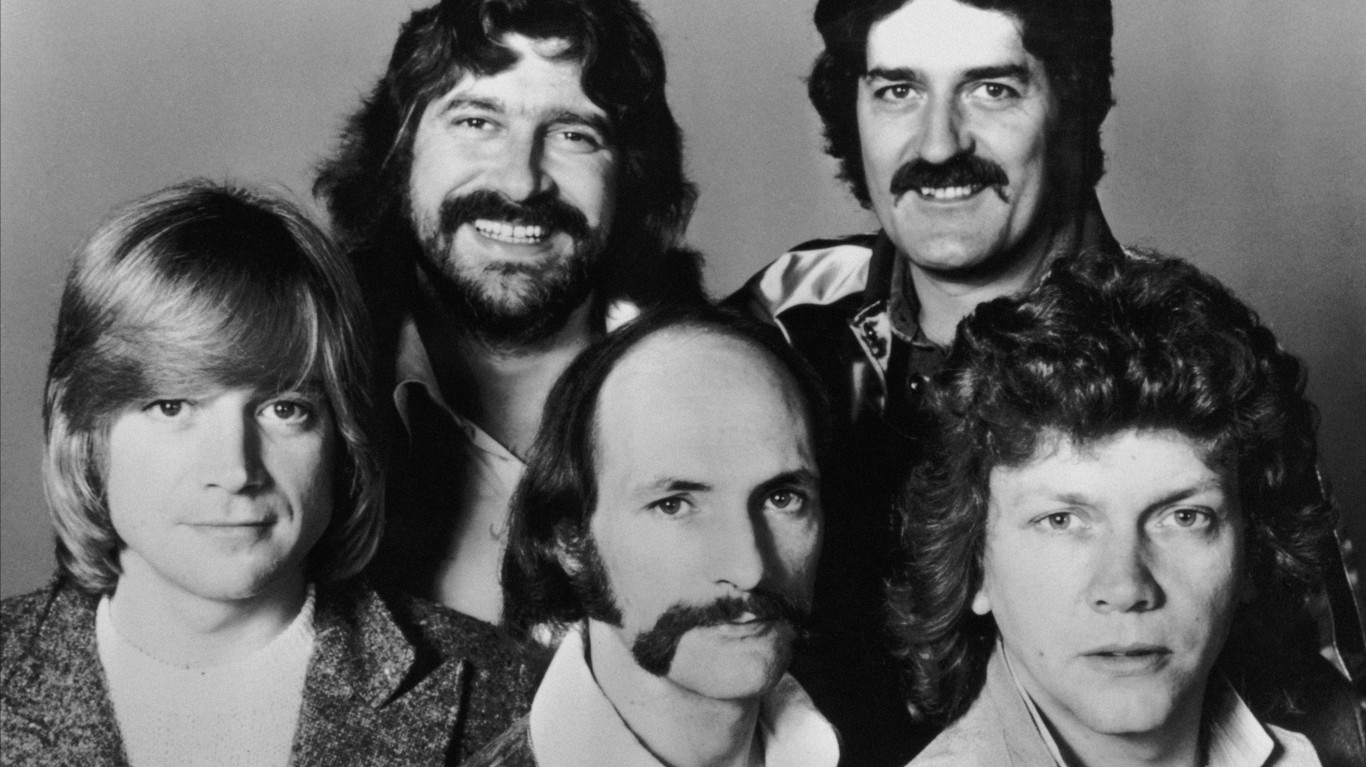
18. The Moody Blues
The British prog rockers were booked to play at Woodstock and were even on some of the original promotional material. However, they chose a gig in Paris instead. Lead singer Justin Hayward said on the online site onmilwaukee.com that the Moody Blues opted for Paris because they had built a strong base in Europe playing the large festivals there.

19. The Rolling Stones
The Rolling Stones declined to appear at Woodstock because Mick Jagger was in Australia filming a biopic titled “Ned Kelly.” At the same time, guitarist Keith Richards’ girlfriend Anita Pallenburg had just given birth. The Stones would tour the United States later that year, an odyssey that would become a rock and roll legend, chronicled in the concert film “Gimme Shelter” that would end in tragedy at Altamont Motor Speedway in California.
[in-text-ad-2]

20. Tommy James and the Shondells
Tommy James and the Shondells were a bubblegum/pop rock band that dabbled in psychedelic, trippy music with the hits “Crimson and Clover” and “Crystal Blue Persuasion,” both of which peaked on the Billboard Hot 100 in 1969. They were in Hawaii when they got the invitation to perform at Woodstock by phone from their secretary who undersold the venue and they passed.
Take Charge of Your Retirement In Just A Few Minutes (Sponsor)
Retirement planning doesn’t have to feel overwhelming. The key is finding expert guidance—and SmartAsset’s simple quiz makes it easier than ever for you to connect with a vetted financial advisor.
Here’s how it works:
- Answer a Few Simple Questions. Tell us a bit about your goals and preferences—it only takes a few minutes!
- Get Matched with Vetted Advisors Our smart tool matches you with up to three pre-screened, vetted advisors who serve your area and are held to a fiduciary standard to act in your best interests. Click here to begin
- Choose Your Fit Review their profiles, schedule an introductory call (or meet in person), and select the advisor who feel is right for you.
Why wait? Start building the retirement you’ve always dreamed of. Click here to get started today!
Thank you for reading! Have some feedback for us?
Contact the 24/7 Wall St. editorial team.
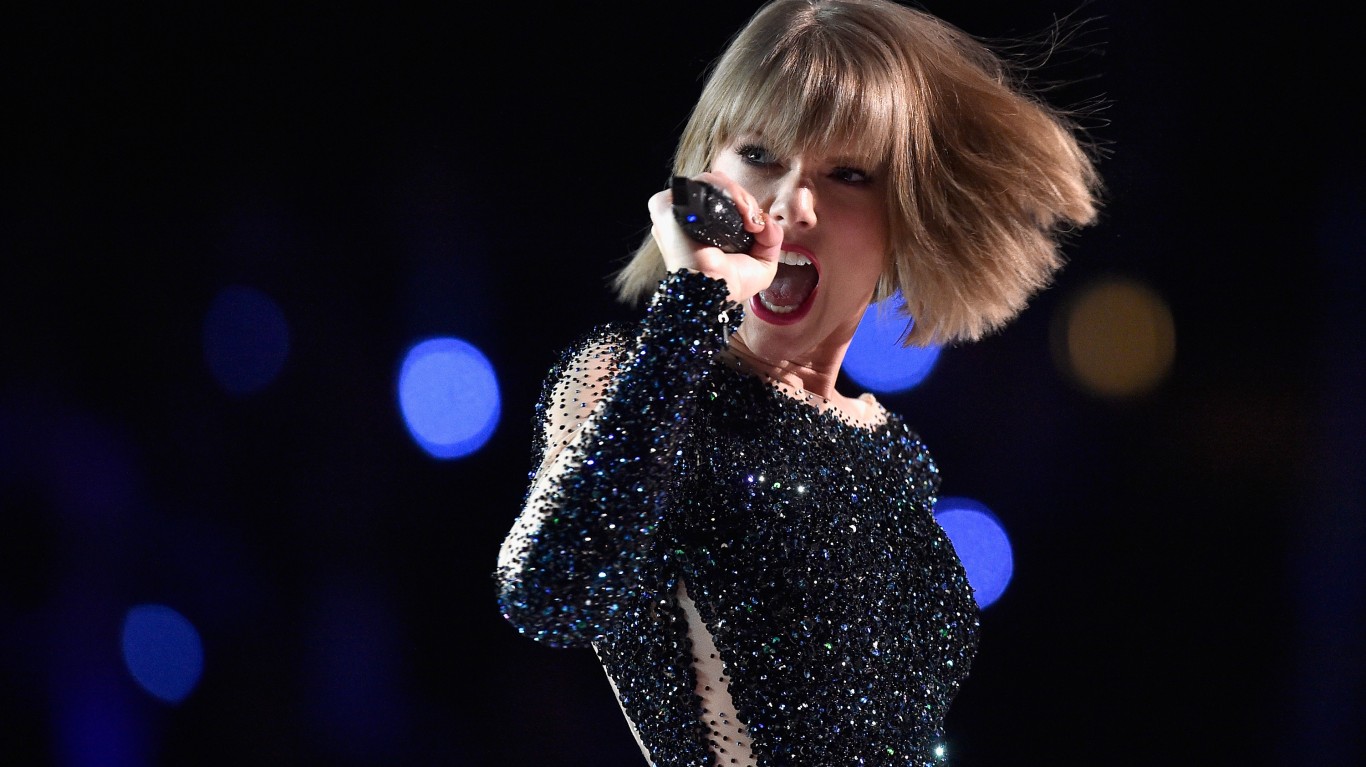 24/7 Wall St.
24/7 Wall St.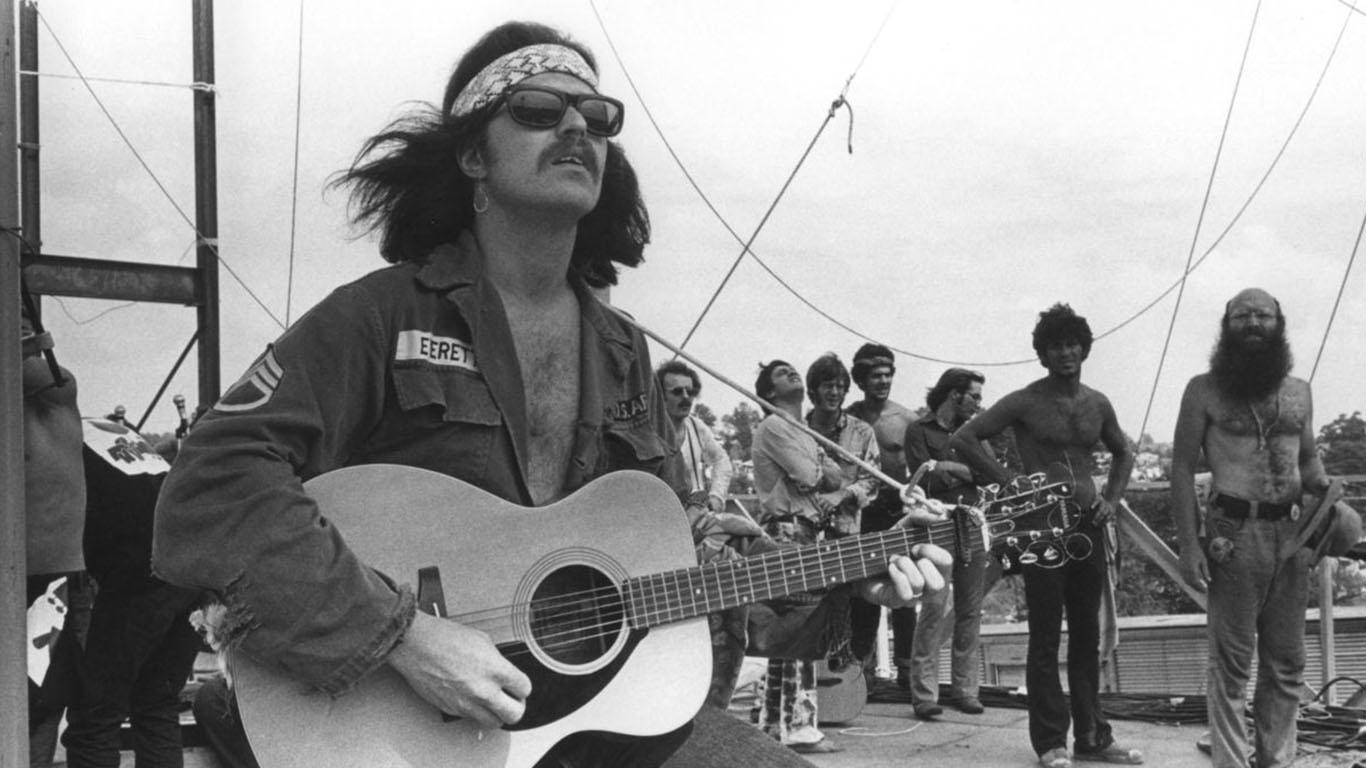 24/7 Wall St.
24/7 Wall St.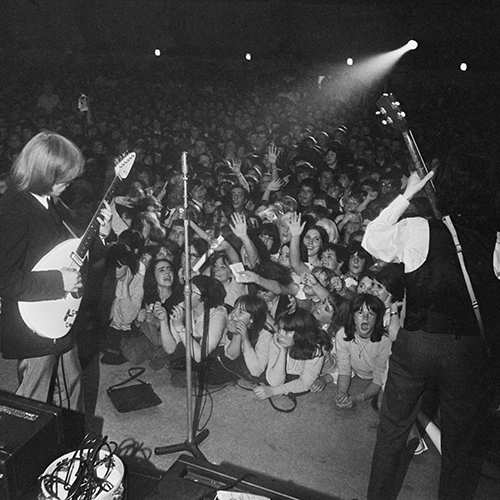 24/7 Wall St.
24/7 Wall St.